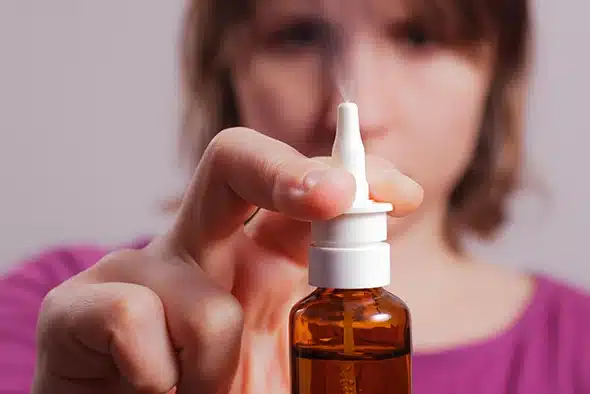Adults, teens, and children get diagnosed with asthma, allergies and other related conditions daily. While a diagnosis can provide answers, you may now have more questions!
A licensed pharmacist is an important part of your healthcare team – including questions about your pesky allergies! Pharmacists are constantly working with patients, insurance and pharmaceutical companies daily. They play an important role in improving your access to different medications and can help with finding ways to lower drug costs.
Here are five ways that pharmacists can assist patients in allergy and asthma health.
1. How to properly use a prescribed medication.
You can consult with your pharmacist for details about a prescribed drug, including:
-what dosage works for you
-when to use the medication
-how the medication works
-how the medication will help you.
When not used correctly, medications are less effective. However, a pharmacist can teach you how to correctly use a metered-dose inhaler or dry powder inhaler.
2. Consult your insurance for information on copays or generic options.
A pharmacist may suggest options to reduce the cost or copay. Options may include:
-reliable generic medication
-rebates
-drug card.
3. Tell patients about products to help reduce exposure to environmental allergens.
Talk to your pharmacist! They are here to help. Your pharmacist can suggest cost-effective steps to help eliminate allergen triggers in your home. Some trigger reduction products can include:
-dust mite-proof mattress and pillow covers
-dehumidifiers
-non toxic pest control
-air filters
Pharmacists can also explain how to use these products designed to control allergens.
4. Check ingredients in medications to determine if they contain a known allergen.
Some medications may contain food allergens. So, your pharmacist can check for an allergen in a medication. It’s best to alert the pharmacy in advance before you pick up your prescription.
5. Talk with your doctor and pharmacist if a bad reaction occurs to a medication or side effects are a problem.
Let your doctor and pharmacist know as soon as possible if you have an allergic reaction or bad side effects to a medication. Then, your doctor and pharmacist can work together to identify an acceptable substitute.
Want to learn more about how pharmacists help with allergies? You can read more here. You can read more here.
Interested in consulting with a pharmacist? Give us a call today or contact us for more information.







